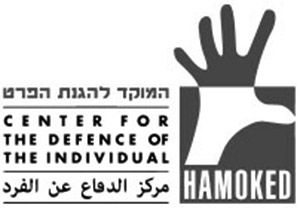With the occupation of the West Bank and the Gaza Strip in 1967, Israel annexed, in contravention of international law, those parts of Jerusalem which were under Jordanian rule from 1948, as well as other extensive West Bank areas near the city. The municipal jurisdiction of West Jerusalem was expanded to include these annexed areas. The annexed Palestinian neighborhoods and villages together beca...me known as East Jerusalem, and the status of permanent Israeli residency was imposed upon their inhabitants. This measure clashed with Israel’s aspirations, stated explicitly by successive Israeli governments, to fortify and consolidate its self-proclaimed sovereignty in Jerusalem by promoting and maintaining a Jewish majority in the city. Therefore, throughout the occupation, Israel has been pursuing a policy aimed at decreasing the number of Jerusalem Palestinians holding Israeli residency, a policy implemented in two ways: by reducing the number of those who are already considered residents of the city, and preventing by whatever means possible the addition of Palestinians to the city’s population.
To limit the number of Palestinians who are considered residents of the city, Israeli authorities employ a policy which forces many to leave the city. This policy includes, among other things, severe restrictions on residential construction, budgetary discrimination, non-development of Palestinian neighborhoods, humiliation and abuse of Palestinians inhabitants and the placing of endless bureaucratic obstacles before the Palestinian population in their dealings with the authorities. A resident who leaves the city risks losing his or her status in Israel: Israeli law allows the Minister of Interior to revoke the permanent status of a person who stayed away from Israel for seven years or acquired foreign status. Israel does not hesitate to use this authority towards the Palestinian inhabitants of East Jerusalem.
To prevent the city’s Palestinian population from growing, Israel employs a policy aimed at limiting as much as possible the number of applications for Israeli status it accepts and approves, filed on behalf of Palestinians from the OPT and neighboring countries who marry East Jerusalem residents, and these couples’ children as well. Among others things, the Ministry of Interior follows complex and obscure procedures, massively delays handling such cases and refuses on various grounds as many applications as possible. This policy was exacerbated after the outbreak of the second intifada, with the enactment of the Citizenship and Entry into Israel Law (Temporary Order), 5763-2003, whose main purpose is to prevent residents of the OPT from receiving status in Israel through family unification with Israeli citizens and residents.
Following the Citizenship and Entry into Israel Law, East Jerusalem residents must contend with even more cumbersome bureaucratic procedures for family unification and child registration. Efforts to find loopholes in the draconian stipulations of the Law, coupled with the state’s efforts to expand its application, have bred a patchwork of legal precedents and exceptions which only a few can fully comprehend. The fate of each man, woman and child is decided according to an endless web of legal sections, subsections, procedures and precedents; examinations of the family unification application submission date and the applicant’s age at that time in relation to the enactment dates of the amendments to the Law, and so on. Within this tangle of legal complexities, the natural right of every person to family life is often trampled – a right which Israel is charged with upholding, under its own constitutional law and international law alike.
* Hereinafter, [H] signifies the link is to the original document in Hebrew.
العربية
HE



